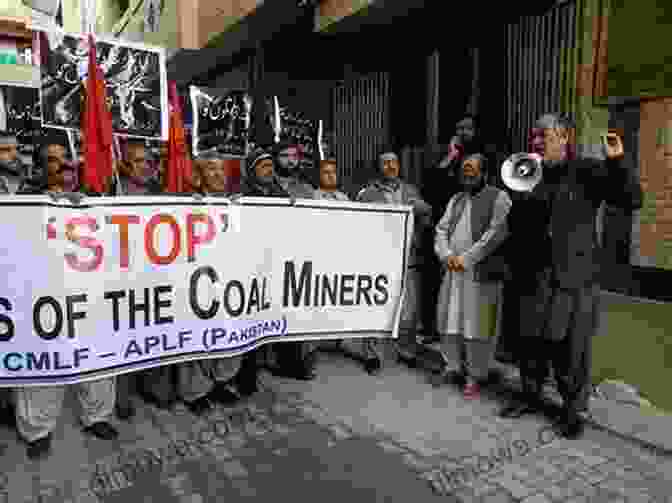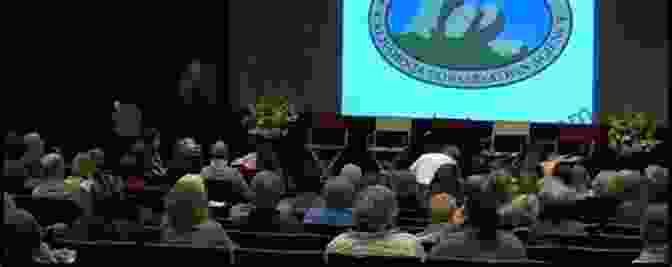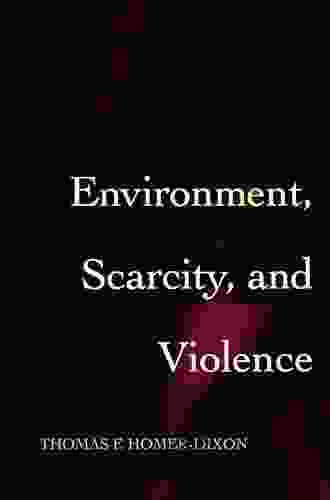Environment, Scarcity, and Violence: A Profound Exploration of the Hidden Linkages

In the face of pressing global challenges, understanding the intricate relationship between environment, scarcity, and violence has become paramount. Thomas Homer Dixon, a renowned environmental security expert, delves into this complex interplay in his groundbreaking book, "Environment, Scarcity, and Violence." This comprehensive and thought-provoking work unveils the hidden connections between environmental degradation, resource scarcity, and the rise of violence and conflict.
Environmental Scarcity: A Catalyst for Conflict
Dixon argues that environmental scarcity, particularly in the form of water, land, and renewable energy, can act as a potent trigger for violence. As populations grow and resources become increasingly strained, competition for these vital resources intensifies. This competition can lead to social and political instability, creating a fertile ground for conflict. Dixon cites numerous historical examples to illustrate this correlation, such as the Darfur conflict in Sudan and the Rwandan genocide.
4.8 out of 5
| Language | : | English |
| File size | : | 2742 KB |
| Text-to-Speech | : | Enabled |
| Screen Reader | : | Supported |
| Enhanced typesetting | : | Enabled |
| Word Wise | : | Enabled |
| Print length | : | 279 pages |

Climate Change and the Escalation of Violence
The book also explores the multifaceted relationship between climate change and violence. Dixon highlights how climate change exacerbates environmental scarcity by disrupting rainfall patterns, intensifying droughts, and melting glaciers. These effects can lead to food shortages, water stress, and the displacement of populations, all of which can contribute to increased social tensions and conflict.

Resource Extraction and Conflict Dynamics
Dixon further delves into the role of resource extraction in the context of environmental scarcity and violence. He explains how the pursuit of natural resources, such as oil, gas, and minerals, can lead to conflicts between governments, corporations, and local communities. These conflicts often arise when resource extraction damages the environment, disrupts livelihoods, or undermines governance mechanisms.

Pathways to Sustainable Peace
While acknowledging the challenges posed by environmental scarcity and violence, Dixon also offers a glimmer of hope. He discusses the crucial role of sustainable development in mitigating these risks. By investing in renewable energy, water conservation, and sustainable agricultural practices, societies can reduce their reliance on scarce resources and promote environmental security.

Empowering Communities and Fostering Collaboration
Dixon emphasizes the importance of empowering local communities in addressing environmental scarcity and violence. He advocates for participatory decision-making processes that involve affected communities in the management of natural resources. By giving communities a voice and a stake in their future, it is possible to reduce the risk of conflict and foster sustainable development.

Inspiring Action and Promoting Dialogue
"Environment, Scarcity, and Violence" is not merely an academic exercise but a call to action. Dixon urges readers to engage with the issues raised in the book and to actively contribute to solutions that address environmental scarcity and promote peace. He highlights the importance of education, awareness campaigns, and policy changes that foster a sustainable and equitable future.

Thomas Homer Dixon's "Environment, Scarcity, and Violence" is an indispensable resource for understanding the complex relationship between environmental degradation, resource scarcity, and conflict. Through compelling evidence and insightful analysis, Dixon reveals the hidden linkages between these factors and provides a roadmap for building a more sustainable and peaceful future.
For anyone concerned about the future of our planet and the challenges facing humanity, "Environment, Scarcity, and Violence" is a must-read. It is a timely and thought-provoking work that will inspire action and promote dialogue on one of the most pressing issues of our time.
4.8 out of 5
| Language | : | English |
| File size | : | 2742 KB |
| Text-to-Speech | : | Enabled |
| Screen Reader | : | Supported |
| Enhanced typesetting | : | Enabled |
| Word Wise | : | Enabled |
| Print length | : | 279 pages |
Do you want to contribute by writing guest posts on this blog?
Please contact us and send us a resume of previous articles that you have written.
 Book
Book Novel
Novel Page
Page Chapter
Chapter Text
Text Story
Story Genre
Genre Reader
Reader Library
Library Paperback
Paperback E-book
E-book Magazine
Magazine Newspaper
Newspaper Paragraph
Paragraph Sentence
Sentence Bookmark
Bookmark Shelf
Shelf Glossary
Glossary Bibliography
Bibliography Foreword
Foreword Preface
Preface Synopsis
Synopsis Annotation
Annotation Footnote
Footnote Manuscript
Manuscript Scroll
Scroll Codex
Codex Tome
Tome Bestseller
Bestseller Classics
Classics Library card
Library card Narrative
Narrative Biography
Biography Autobiography
Autobiography Memoir
Memoir Reference
Reference Encyclopedia
Encyclopedia Cordelia K Castel
Cordelia K Castel W Warde Fowler
W Warde Fowler Trevor Hastie
Trevor Hastie Caroline B Cooney
Caroline B Cooney Mike Henneberger
Mike Henneberger Kellie Hailes
Kellie Hailes Terry Maggert
Terry Maggert Drethi Anis
Drethi Anis Tamara Thiessen
Tamara Thiessen Rosemerry Wahtola Trommer
Rosemerry Wahtola Trommer Wayne Beck
Wayne Beck Harry J Elam
Harry J Elam Sweetly Samuel
Sweetly Samuel Tasha Mack
Tasha Mack Tess Oliver
Tess Oliver Isla Chiu
Isla Chiu Tom Palmer
Tom Palmer Glynnis Campbell
Glynnis Campbell Suzanne Alyssa Andrew
Suzanne Alyssa Andrew Swifty Kidder
Swifty Kidder
Light bulbAdvertise smarter! Our strategic ad space ensures maximum exposure. Reserve your spot today!

 Reginald CoxImmerse Yourself in the Poetic Masterworks of Robert Frost: Unveil the Delphi...
Reginald CoxImmerse Yourself in the Poetic Masterworks of Robert Frost: Unveil the Delphi... Geoffrey BlairFollow ·19.7k
Geoffrey BlairFollow ·19.7k Andres CarterFollow ·18k
Andres CarterFollow ·18k Eric HayesFollow ·19.3k
Eric HayesFollow ·19.3k Russell MitchellFollow ·15.8k
Russell MitchellFollow ·15.8k Jerome BlairFollow ·15k
Jerome BlairFollow ·15k Josh CarterFollow ·12.1k
Josh CarterFollow ·12.1k Edgar Allan PoeFollow ·13.8k
Edgar Allan PoeFollow ·13.8k Terry PratchettFollow ·18.8k
Terry PratchettFollow ·18.8k

 F. Scott Fitzgerald
F. Scott FitzgeraldLove Me Better, Love Me Right: A Journey of...
Unveiling the Profound Power of Emotional...

 Eddie Powell
Eddie PowellHow To Make Your Muzzleloader Most Effective And Keep It...
In the realm of firearms, muzzleloaders hold...

 Andy Hayes
Andy HayesPrepare Mentally, Physically, and Emotionally for the...
Embark on a Transformative Odyssey to...

 Oliver Foster
Oliver FosterThe Bittersweet Bride: Advertisements for Love
A Poignant...
4.8 out of 5
| Language | : | English |
| File size | : | 2742 KB |
| Text-to-Speech | : | Enabled |
| Screen Reader | : | Supported |
| Enhanced typesetting | : | Enabled |
| Word Wise | : | Enabled |
| Print length | : | 279 pages |














